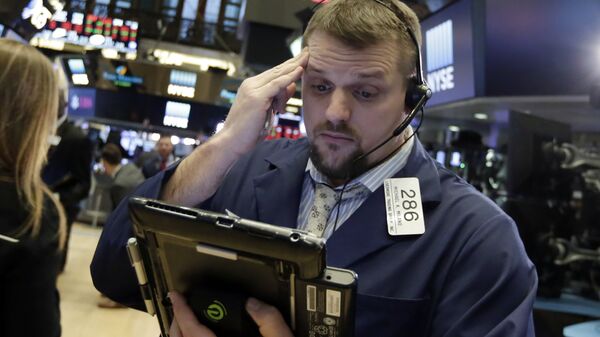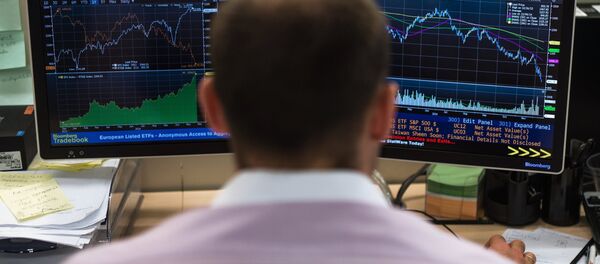Kristian Rouz — Global investment flows are gradually turning towards sectors perceived as immune to the disruptions in international trade. This comes after international investment slumped 23 percent last year, posing a long-term challenge to multinational corporations and policymakers around the world.
Earlier this year, US President Donald Trump moved to protect American industries with measures that include tariffs and non-tariff restrictions on trade in goods and services between the US and its major trade partners. Subsequently, international fund managers are now looking at tech and financial sector companies as likely sources of growth in the years to come.
READ MORE: US Business Investment Rises in April, Durable Goods Orders Slide
"The impact of a tariff is becoming a bigger factor in our decision-making," said George Maris of Janus Henderson Global Select fund, where he manages some $2.2 bln in assets.
US trade policies, and the possible retaliatory measures taken by Mainland China, the EU, Canada, and Mexico, aren't the only concern for US-based global investors.
Political risks across the globe have been elevated over the past four years, including the wave of right-wing populism and nationalism in Europe, as well as military tensions in the Middle East and South China Sea.
Politics and economic are oftentimes intertwined, meaning a lower investment appeal for countries affected by political turmoil.
"Sentiment has currently shifted; there's a higher level of apprehension among Chinese investors towards investing in Australia," Prof. Hans Hendrischke of the University of Sydney said. "Seventy percent of respondents stated that the political debate had made Chinese companies more cautious about investing in Australia."
Additionally, the global economy is still fragile despite the recent signs of acceleration. Central banks in the Eurozone and Japan are still supporting their national economies with unconventional monetary stimuli — almost 10 years after the global economic crisis. Commodity prices remain fairly low, while several key emerging markets, including Turkey, Argentina, and South Africa, are mired in a currency crises.
READ MORE: Higher Oil Prices Boost US Small Business Investment
The slide in emerging market currencies was triggered by the US Federal Reserve's increases in interest rates, coupled with a significant exposure of the affected countries to dollar-denominated debt.
"We are now in a quantitative tightening regime, not a quantitative easing (QE) regime," Gregory Peters of PGIM Fixed Income said. "The halcyon days of lower volatility and rising markets are behind us. If QE lifted markets then the opposite has to have some kind of impact."
In this light, investors are now looking at companies that have a solid presence in the given country's domestic market, which is unlikely to be affected by international trade woes and other overseas risks. Another attractive investment destination is a company enjoying a dominant position in its niche.
"You can find tariff-resistant businesses that are in niches, but it takes work to find them," Sammy Suzuki of AB International Strategic Core fund said.
However, the international exchange in capital flows is poised to continue its decline in the coming years, along with the volumes of global trade. Several advanced economies, including the US and the UK, are seeking increased self-sustainability.
Meanwhile, emerging markets are now facing mounting development challenges, as they can't rely on the manufacturing facilities off-shored from the US or Europe as much any longer.
"This negative trend is a long-term concern for policy makers worldwide," UN Secretary-General Antonio Guterres said. "This troubling global investment picture underscores the importance of a conducive global investment environment."
The US still remains the global magnet for foreign direct investment, raising some $275 bln in 2017, followed by Mainland China ($136 bln). Overall, according to UN data, global FDI flows dropped to $1.43 trln last year, compared to $1.87 trln in 2016.


